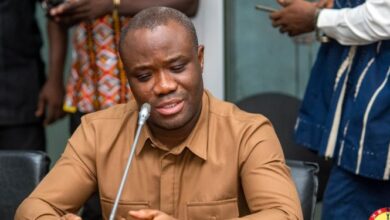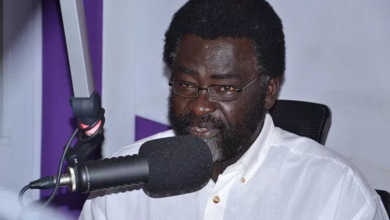Abronye drags EOCO, NIB to Supreme Court over unlawful detentions

Bono Regional Chairman of the New Patriotic Party (NPP), Kwame Baffoe, widely known as Abronye, has taken a bold legal step by dragging the Attorney-General’s Department, the Economic and Organised Crime Office (EOCO), and the National Intelligence Bureau (NIB) to the Supreme Court.
In a writ filed at Ghana’s apex court, Abronye is invoking the court’s original jurisdiction to seek clarity on what he believes is a violation of the 1992 Constitution—specifically, the continued detention of suspects beyond 48 hours, even after bail has been granted but not executed.
The crux of his argument is that law enforcement agencies are unconstitutionally detaining individuals who are unable to meet their bail conditions, which he insists amounts to a constructive denial of bail.
According to him, Article 14(3) of the Constitution mandates that any person arrested or detained must be brought before a court within 48 hours.
Yet, in practice, suspects are held for longer periods—especially by EOCO and NIB—on the justification that bail conditions haven’t been met.
Abronye wants the Supreme Court to issue multiple declarations:
He’s asking the court to confirm that the 48-hour rule also applies to cases where bail has been granted but the accused cannot fulfill the conditions.
He’s also challenging the authority of EOCO and NIB to detain individuals beyond that window without judicial approval. Even where bail is granted, he argues, it is unconstitutional to hold a person indefinitely because of excessive or punitive bail requirements.
“The current practice amounts to the use of technicalities to override a person’s constitutional rights,” Abronye’s team asserts in the filing.
He further argues that setting unattainable bail terms undermines the spirit of Ghana’s justice system. In such instances, he believes the detention becomes unlawful and violates the Constitution’s guarantee of personal liberty.
Aside from seeking constitutional interpretation, Abronye is demanding an order directing these state agencies to either release such suspects or present them in court within the stipulated time—even if their bail is unfulfilled. He’s also asking for any other consequential orders the court deems necessary to uphold fundamental human rights.
Filed under Articles 2(1) and 130(1) of the Constitution and Rule 45 of the Supreme Court Rules (C.I. 16), the suit places the Attorney-General, EOCO, and NIB as defendants.



